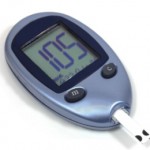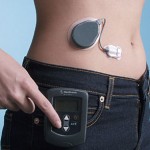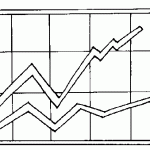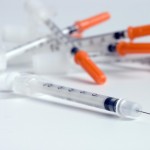DiabetesHealth: My Glucagon Security Blanket

On the importance of Glucagon as an emergency resource when blood sugar is too low.

On the importance of Glucagon as an emergency resource when blood sugar is too low.

Patients who had suboptimal glycemic control and reduced their HbA1c value by slightly less than 1% were 50% less likely to die within 5 years than were patients whose HbA1c did not improve.

A comprehensive review of the ibGStar, from the software to the strips.

Lindsey Guerin discusses the possible causes behind her low blood glucose readings.

Is there any way to re-use blood glucose test strips? How to measure your blood glucose if you ran out of strips? Interesting blog post on the subject.

Blood glucose monitoring at least once a day is associated with reduced A1C levels and greater adherence to medication in type 2 diabetes patients who do not take insulin

Resveratrol, an ingredient in red wine thought to improve insulin sensitivity, reduce risk of heart disease and increase longevity, does not appear to offer these benefits.

Mike Lawson reports on the similarities and differences of “next-gen” insulin pumps systems.

Full-body or X-ray scanners used for airport security screening may affect the function of insulin pump or continuous glucose monitoring (CGM) devices.

There is a new category of insulin device on the market that is aimed at patients with type 2 diabetes. It’s a disposable insulin delivery device.

Roche has announced it has received FDA clearance for a blood glucose monitor for hospital point-of-care testing, according to a news release.

Eli Lilly & Co’s experimental once-weekly diabetes drug dulaglutide proved superior in late-stage clinical trials to three other widely used medicines that are dosed more frequently, the company said on Monday.

Eating more legumes (such as beans, chickpeas or lentils) as part of a low-glycemic index diet appears to improve glycemic control and reduce estimated coronary heart disease.

There are currently eight categories of oral agents marketed in the US for lowering blood sugar in type 2 diabetes. Each category has different reasons for use, differing efficacies for different individuals, etc.

Wil Dubois answers some science-y questions about pancreas transplants and whether an immune-suppressant drug for HIV/AIDS and hepatitis could impact someone’s type 1 diabetes honeymoon.

The main objectives of pancreas transplant are to eliminate the patient’s dependency on insulin, to improve the quality of life and to reduce long-term diabetic complications.

Patients who had suboptimal glycemic control and reduced their hemoglobin A1c value by slightly less than 1% were 50% less likely to die within 5 years than were patients whose HbA1c did not improve. Read more

In simple terms, the glycemic index measures how much a food raises blood sugar levels. The word “glycemic” refers to sugar in the blood. However, there is a layer of complexity to this analysis.

In certain insulin-naive patients with type 2 diabetes, initiating basal insulin with degludec rather than glargine may make for a smoother course.

All participants had their glucose levels measured four and one-half hours after eating. At that time, those with diabetes had a significantly higher glucose level when they did not walk.